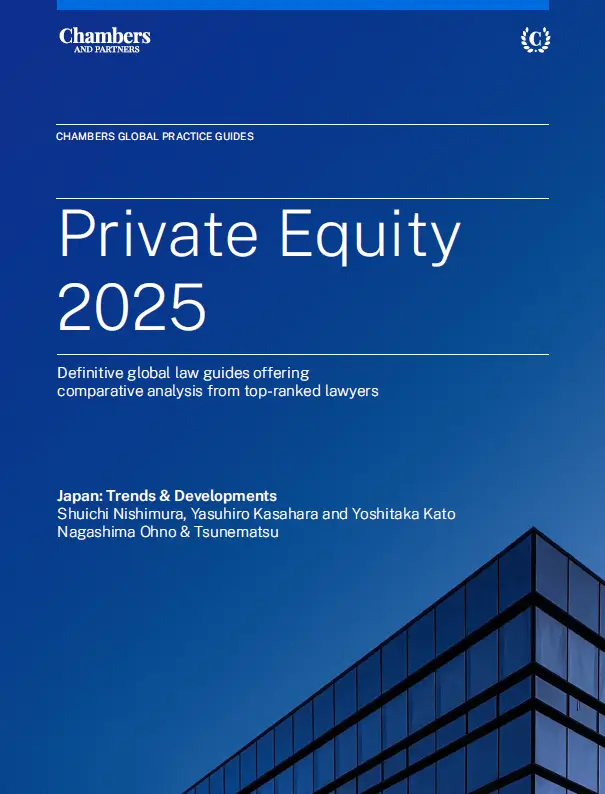
NO&T Asia Legal Review
In January 2022, the Securities and Exchange Board of India (“SEBI”) introduced certain amendments to Chapter V of the Securities and Exchange Board of India (Issue of Capital and Disclosure Requirements) Regulations, 2018 (the “SEBI ICDR Regulations”), which deals with preferential issuances of securities by listed companies. SEBI introduced these amendments after receiving several suggestions and representations from market participants, and these are aimed at facilitating fund raising by listed companies through preferential issuance of securities while at the same time ensuring that such issuance is not detrimental to the interest of shareholders.
The key changes introduced by the amendments to the SEBI ICDR Regulations are as follows:
Under the unamended regime, the SEBI ICDR Regulations mandated that the preferential issue price will be higher of the average of weekly high low of the volume weighted average price (“VWAP”) for twenty six weeks or VWAP for two weeks preceding the relevant date※1. However, the dynamic nature of the market often resulted in a significant difference in the price determined on the basis of twenty six weeks’ average vis-à-vis two weeks’ average.
To address this concern, the amendments provide that the issue price will be the higher of VWAP for ninety trading days or ten trading days preceding the relevant date.
Requirement of a Valuation Report: To address concerns with respect to the valuation of scrips where preferential issuance resulted in a change of control of the listed company, and where a single entity received significant shares in the listed company, the amendments provide that any preferential issue resulting in a change in control or allotment of more than 5% of post issue fully diluted share capital of the listed company to an allottee or allottees acting in concert, shall require valuation report from a registered valuer and the board of the company shall consider the said valuation for pricing.
Recommendation from Independent Directors: The amendments provide that any preferential issue, which may result in a change in control of the listed company, shall only be made pursuant to a reasoned recommendation from a committee of independent directors of the listed company after considering all the aspects relating to the preferential issue including pricing, and the voting pattern of the said committee’s meeting shall be disclosed in the notice calling the general meeting of shareholders.
Promoters: The un-amended lock-in provisions mandated minimum three years lock-in period for promoters/ promoters group for equity shares issued up to 20% of the total capital of the listed company and any equity shares issued in excess of 20% were locked-in for a period of one year. This requirement was perceived as burdensome, especially where a company was listed for a reasonable number of years on the stock exchanges and whose promoters continued to hold on to their stake in the past years. To address this concern and to streamline the preferential issue lock-in provisions with the provisions of public issue, the amended regulations provide that the lock-in requirement for issuance of up to 20% of the post issue paid-up capital to the promoters shall be reduced to eighteen months from the existing three years. The lock-in requirement for issuance exceeding 20% of the post issue paid-up capital shall be reduced to six months from the existing one year.
Non-promoters: For non-promoters, the locked-in period of the issued shares has been reduced from one year to six months.
The unamended regulations provided that where the preferential issuance is made for a consideration other than cash, the valuation of the assets in consideration for which the shares are issued shall be done by an independent valuer. SEBI acknowledged that the regulations did not specify the different forms of consideration that can be allowed as “other than cash”. To provide such clarity, the amendments provide that only share swap backed by a valuation report shall be allowed as consideration “other than cash” for a preferential issue.
The amendments introduced by SEBI are a welcome step to reflect the present day requirements of the market and the growing capital needs of companies. The amendments are expected to boost fund raising by listed companies and enhance confidence among investors.
*1
“Relevant Date” means the date thirty days prior to the date on which the meeting of shareholders is held to consider the proposed preferential issue.
This newsletter is given as general information for reference purposes only and therefore does not constitute our firm’s legal advice. Any opinion stated in this newsletter is a personal view of the author(s) and not our firm’s official view. For any specific matter or legal issue, please do not rely on this newsletter but make sure to consult a legal adviser. We would be delighted to answer your questions, if any.


(September 2025)
Yasuhiro Kasahara, Masaki Mizukoshi, Yoshitaka Kato (Co-author)


Yusei Uji


(September 2025)
Shuichi Nishimura, Yasuhiro Kasahara, Yoshitaka Kato (Co-author)


Ichsan Montang, Valencia Wijaya (Co-author)


(September 2025)
Yasuhiro Kasahara, Masaki Mizukoshi, Yoshitaka Kato (Co-author)


Yusei Uji


(September 2025)
Shuichi Nishimura, Yasuhiro Kasahara, Yoshitaka Kato (Co-author)


Ichsan Montang, Valencia Wijaya (Co-author)


Supasit Boonsanong, Thananya Pholchaniko, Phareeya Yongpanich (Co-author)


Patricia O. Ko


Claire Chong, Nozomi Kato (Co-author)


Yuan Yao Lee


Supasit Boonsanong, Thananya Pholchaniko, Phareeya Yongpanich (Co-author)


Patricia O. Ko


Claire Chong, Nozomi Kato (Co-author)


Yuan Yao Lee


Rashmi Grover


Shejal Verma


Rashmi Grover


Shejal Verma, Rashmi Grover (Co-author)